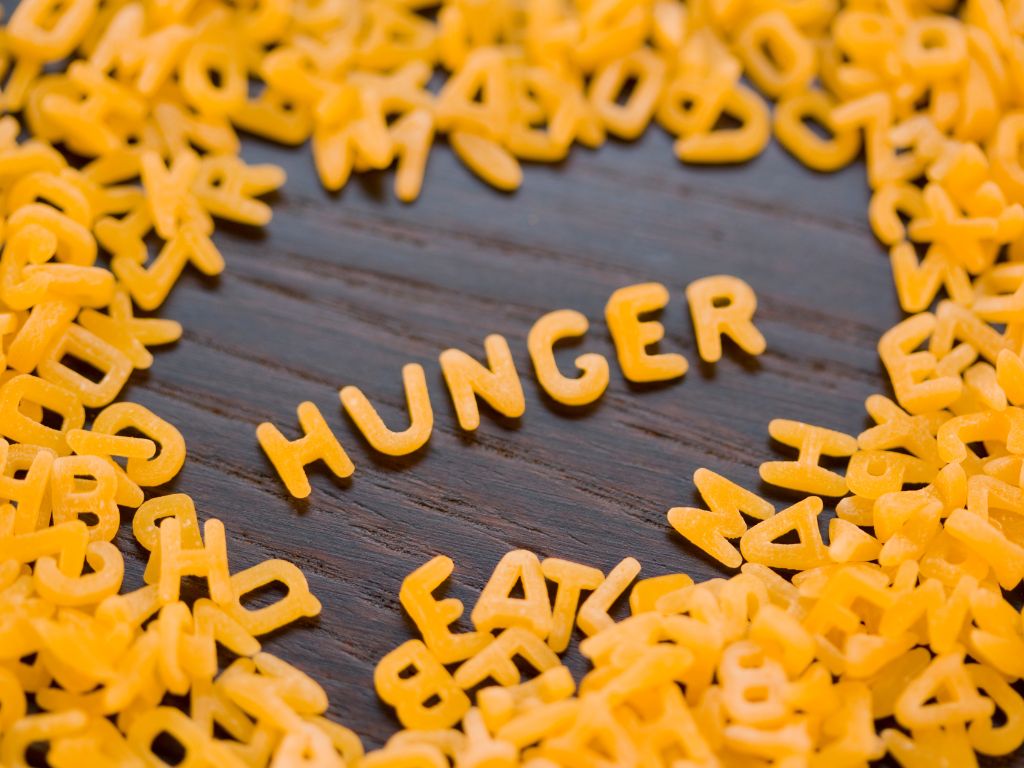Struggling with snacking? Could fiber, stress relief, and supplements be the answer to suppressing your appetite?

Fiber and the amount of food you eat
The body produces a number of different peptides and hormones that suppress our hunger. In the stomach and intestines, we have mechanoreceptors, which send signals that we are full. These receptors are not activated by a specific molecule like many others, but when the tissue in the stomach and intestines is stretched. This means that our hunger is suppressed and we feel full when the stomach expands, regardless of what caused the expansion. Eating low-calorie foods that fill the stomach and intestines is therefore a good way to reduce calorie intake while suppressing hunger. Vegetables that contain a lot of liquid shrink for a while after consumption and you easily get hungry again, but foods that contain a lot of water-soluble fiber take on a jelly-like consistency and expand in the stomach. Even vegetables that contain cellulose absorb liquid and fill the abdomen so that you feel full.
Reduce stress
Emotional eating is a common symptom of stress and can be a major obstacle to weight loss. Since emotional eating is not linked to physical hunger, it cannot be controlled with an increased intake of fiber either.
The best way to combat emotional eating is to manage the stress. It is impossible to provide a one-size-fits-all solution to the problem of stress, but making sure to incorporate healthy sleep habits and trying to eat as well as possible are two lifestyle changes that make a big difference for many. Above all, making sure to sleep enough hours in a dark and quiet room is crucial to reducing stress.
If lifestyle changes are not enough to reduce stress and overcome emotional eating, it may be worth trying dietary supplements of adaptogens. Adaptogens are plant extracts that cause a less stress reaction in the body. This reaction helps the body adapt to deal with stress and increases your resilience. Some popular adaptogens are Rose root (Rhodiola), Panax Ginseng and Ashwagandha. These supplements do not reduce your hunger, but can help you reduce your emotional eating by better managing stress.

Other dietary supplements
Adrenaline can reduce appetite. When the body is stimulated, blood is moved from the digestive system to other parts of the body to prepare it for a fight-or-flight response. Stimulants and other supplements that increase levels of adrenaline in the body have the same effect. A low dose of a stimulant can suppress hunger, but excessive amounts can cause nausea and other negative effects. People who are not used to caffeine can, for example, drink a cup of coffee in the morning and thus suppress feelings of hunger. However, this strategy does not produce the same effect for habitual coffee drinkers. It is also important to keep in mind not to use stimulants to reduce appetite during the evening, as this can instead have a negative effect on sleep.

Need help choosing the right supplement?
Do our unique consultation here, developed by our biomedical experts and receive a tailored recommendation that is 100% adapted to you and your wishes.
A wise word on the way
There are no shortcuts when it comes to diet and health. Since everyone can use a little help when it comes to weight loss and occasional hunger pangs, there are a plethora of products on the market that claim to curb appetite and reduce sweet cravings. But the most effective tips that we presented in this article are not based on taking any advanced nutritional supplements. So do both yourself and your wallet a favor and don't buy into the marketing of all these "super products". Fiber-rich vegetables are both cheaper and more effective.






